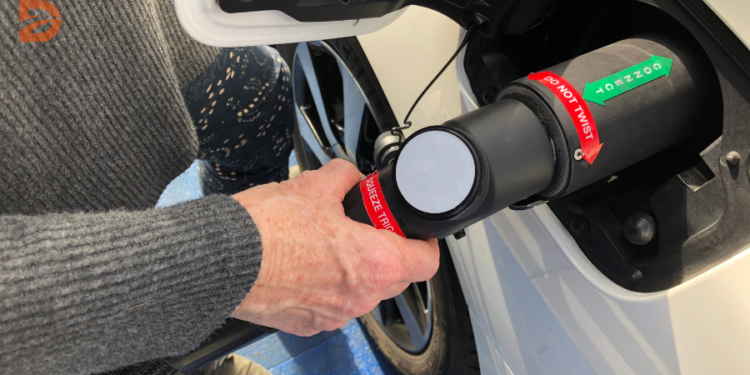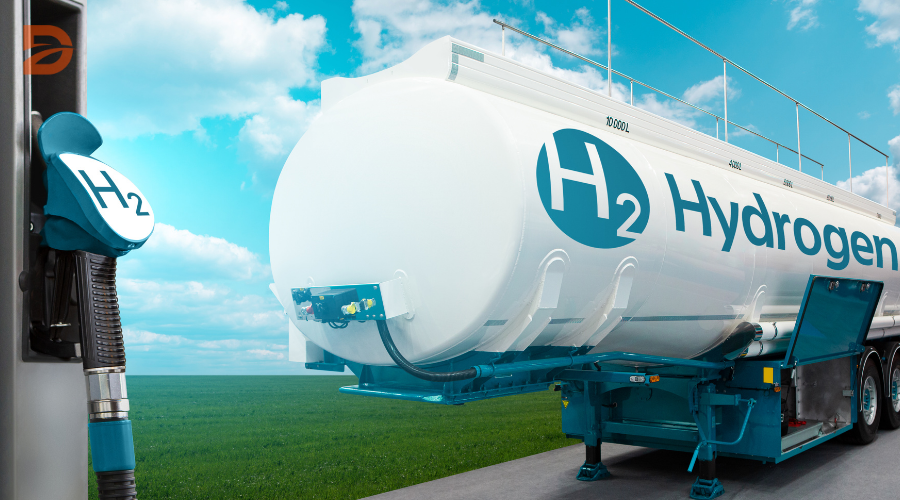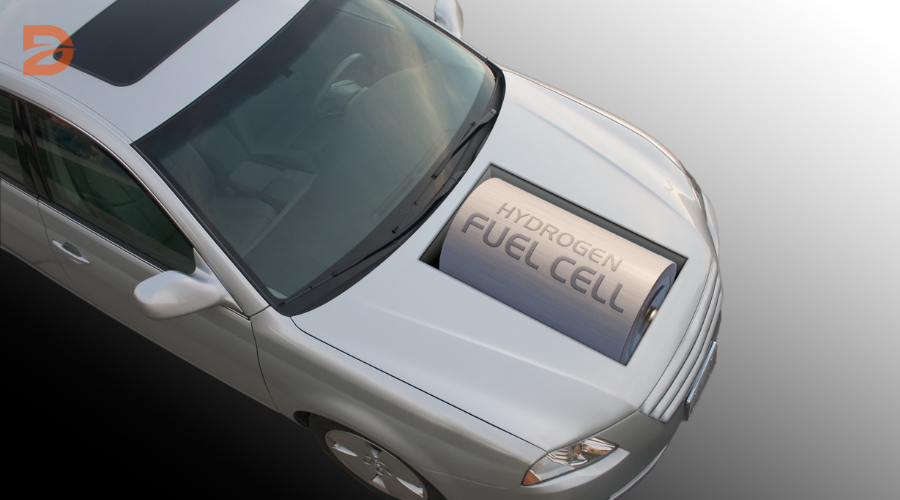Imagine a world where cars emit nothing but water vapor, offering a glimpse into a more sustainable automotive future. This vision is becoming a reality with the rise of hydrogen fuel cell vehicles (FCEVs), which are poised to transform the way we think about clean transportation. With driving ranges often exceeding 300 miles on a single tank, and refueling times akin to traditional gasoline cars, these innovative vehicles are challenging the status quo of electric mobility.
Though hydrogen cars may not be as ubiquitous as their battery-powered counterparts, major automakers like Toyota, Honda, and Hyundai are embracing this technology as a means to reduce emissions and promote green mobility. As governments worldwide implement policies and incentives to encourage the adoption of FCEVs, the hydrogen car revolution is steadily gaining momentum, offering a promising alternative to both gasoline-powered and battery-electric vehicles.
Key Takeaways
- Hydrogen fuel cell cars boast impressive driving ranges of over 300 miles on a single tank.
- Refueling a hydrogen car takes just a few minutes, similar to filling up a traditional gasoline vehicle.
- Hydrogen cars are known for their smooth and responsive acceleration, offering a dynamic driving experience.
- The lack of hydrogen refueling infrastructure is a significant challenge facing the widespread adoption of hydrogen cars.
- Hydrogen cars can be more expensive than traditional gasoline-powered and some electric vehicles.
The Rise of Hydrogen Fuel Cell Vehicles
Hydrogen fuel cell technology is gaining momentum as a promising alternative to traditional internal combustion engines. Hydrogen cars, powered by fuel cell stacks that convert hydrogen gas into electricity, are emerging as an eco-friendly and efficient option for drivers.
How Hydrogen Cars Work
Hydrogen fuel cell vehicles use a hydrogen fuel cell stack to power an electric motor. The fuel cell stack takes in hydrogen gas and oxygen, and through an electrochemical reaction, generates electricity to drive the vehicle. This process produces zero direct greenhouse gas emissions, making hydrogen cars a clean and sustainable transportation solution.
Advantages of Hydrogen Cars
- Environmental Benefits: Hydrogen cars have zero direct emissions, contributing to cleaner air and reduced carbon footprint.
- Impressive Range: Hydrogen cars can travel 300-400 miles on a single tank, comparable to traditional gasoline-powered vehicles.
- Quick Refueling: Filling up a hydrogen car takes only a few minutes, similar to refueling a conventional car.
- Incentives and Rebates: Hydrogen fuel cell vehicles are eligible for government incentives and rebates, such as a $4,500 rebate ($7,500 for income-qualified purchasers) in California, making them more affordable for consumers.
As fuel cell technology, hydrogen infrastructure, and hydrogen production continue to evolve, the popularity of hydrogen refueling stations is expected to grow, further driving the adoption of hydrogen-powered cars in the years to come.
Hydrogen Cars: Eco-Friendly and Efficient
As the global push for sustainable transportation accelerates, hydrogen-powered vehicles have emerged as a promising alternative to traditional gasoline-powered and battery-electric cars. Hydrogen fuel cell vehicles, or FCEVs, offer a unique combination of environmental benefits and practical advantages that make them an intriguing option for eco-conscious drivers.
Environmental Benefits
One of the primary advantages of hydrogen cars is their “zero-emission” nature. Unlike internal combustion engines, FCEVs produce no harmful exhaust, emitting only water vapor as a byproduct. This makes them a truly sustainable choice for those seeking to reduce their carbon footprint and contribute to cleaner air quality in their communities.
Range and Refueling Convenience
Hydrogen cars also offer longer driving ranges compared to traditional battery-electric vehicles (BEVs). While BEVs can typically travel between 150 to 375 miles on a single charge, hydrogen cars can go up to 600 miles before needing to refuel. Additionally, the refueling process for hydrogen cars is much quicker, taking only a few minutes, providing a more convenient alternative to the lengthy charging times associated with BEVs.
| Metric | Battery Electric Vehicles (BEVs) | Hydrogen Fuel Cell Vehicles (FCEVs) |
|---|---|---|
| Driving Range | 150 – 375 miles | 400 – 600 miles |
| Refueling Time | 4 – 8 hours | 5 – 10 minutes |
| Energy Efficiency | 80% of the total energy used to power the vehicle | Less energy-efficient than BEVs |
However, it’s important to note that while hydrogen cars offer a more convenient refueling experience, they are generally less fuel-efficient than their battery-powered counterparts. This trade-off is something that consumers will need to weigh as they consider their options for eco-friendly, zero-emission vehicles and green mobility solutions.
Challenges Facing Hydrogen Fuel Cell Vehicles
As the world looks to transition towards more sustainable transportation solutions, hydrogen fuel cell vehicles have emerged as a promising alternative to traditional gasoline-powered cars. However, the widespread adoption of hydrogen cars faces several key challenges that must be addressed to ensure their long-term viability.
Infrastructure Limitations
One of the primary hurdles for hydrogen cars is the lack of a comprehensive hydrogen infrastructure. Currently, there is a limited number of hydrogen refueling stations, with California being the only state in the United States to have a substantial network. This lack of a nationwide infrastructure poses a significant obstacle for consumers, as the convenience and accessibility of refueling stations are crucial factors in the decision to purchase a hydrogen vehicle.
Hydrogen Production Sustainability
Another challenge facing hydrogen cars is the sustainability and environmental impact of hydrogen production. The most common method of hydrogen production, known as “gray hydrogen,” relies on fossil fuels, specifically natural gas, which can contribute to carbon emissions and undermine the environmental benefits of hydrogen-powered vehicles. To truly realize the potential of hydrogen as a clean energy source, the industry must transition towards more sustainable “green hydrogen” production methods that utilize renewable energy sources, such as solar, wind, or hydropower, to power the electrolysis process.
Overcoming these challenges will be crucial for the widespread adoption of hydrogen fuel cell vehicles and the creation of a truly sustainable transportation ecosystem. Continued investment in hydrogen infrastructure and the development of innovative, low-emission hydrogen production technologies will be essential in driving the growth of this emerging industry.
Hydrogen fuel cell vehicles, hydrogen cars – Market Leaders
As the world shifts towards sustainable transportation, several automakers have emerged as leaders in the hydrogen fuel cell vehicle market. Toyota, Honda, and Hyundai have been at the forefront of this technological revolution, continuously investing in research and development to create more efficient and affordable hydrogen-powered cars.
Toyota’s Mirai model has been a pioneering force in the hydrogen car segment, showcasing the potential of this clean energy source. With a range of over 400 miles and a refueling time of just a few minutes, the Mirai has set a new standard for hydrogen vehicles. Similarly, Honda’s Clarity Fuel Cell and Hyundai’s Nexo SUV have been garnering attention for their eco-friendly performance and practical features.
| Automaker | Model | Range (miles) | Refueling Time |
|---|---|---|---|
| Toyota | Mirai | 403 | 5 minutes |
| Honda | Clarity Fuel Cell | 360 | 3-5 minutes |
| Hyundai | Nexo SUV | 380 | 5 minutes |
The global hydrogen fuel cell vehicle market is expected to experience remarkable growth in the coming years, with a projected market size of $57.9 billion by 2032, growing at a CAGR of 43% from 2023 to 2032. This surge in demand is driven by the increasing focus on sustainability and the desire to reduce carbon emissions from transportation.
As the industry continues to evolve, these leading automakers are at the forefront of the hydrogen revolution, paving the way for a more sustainable and efficient future of transportation.
Government Support and Incentives
Governments around the world are recognizing the potential of hydrogen fuel cell vehicles and implementing policies and initiatives to encourage their adoption. From tax breaks and purchase rebates to funding for infrastructure development, various government programs are driving the growth of this sustainable transportation technology.
Policies and Initiatives
One such program, the Zero Emissions Airport Vehicle, and Infrastructure Pilot, provides funding for up to 50% of the cost to acquire zero-emission vehicles and supporting infrastructure, with a focus on areas with air quality concerns. The Alternative Fuel Excise Tax Credit offers a $0.50 per gallon tax credit for alternative fuels like hydrogen, natural gas, and propane, extended through 2024.
The Alternative Fuel Vehicle Refueling Property Credit provides a 6% to 30% tax credit for qualified alternative fuel refueling equipment installed between 2023 and 2032, with a cap of $100,000 per item. The Carbon Reduction Program also funds activities to reduce transportation emissions, including truck stop electrification and alternative fuel vehicle deployment.
Governments are also investing in hydrogen infrastructure through initiatives like the Charging and Fueling Infrastructure Discretionary Grant Program, which supports public accessibility and underserved regions. Producers of clean hydrogen are eligible for a tax credit of up to $3 per kilogram, while the Advanced Energy Project Credit offers a $10 billion fund for projects related to fuel cell electric vehicles, hydrogen infrastructure, and other clean technologies.
These government policies and incentives demonstrate a growing commitment to sustainable transportation and the widespread adoption of hydrogen vehicle incentives. As countries work to address government policies and support the transition to a low-carbon future, hydrogen fuel cell vehicles are poised to play a vital role in the transformation of the transportation sector.
Conclusion
As the world grapples with the need for more sustainable transportation options, hydrogen cars have emerged as a promising solution. With their impressive range, quick refueling times, and the potential for significant environmental benefits, hydrogen-powered vehicles offer a compelling alternative to traditional gasoline-powered cars and even electric vehicles.
While challenges remain, such as the need for expanded infrastructure and more sustainable hydrogen production methods, the future of hydrogen cars looks bright. With continued advancements in fuel cell technology, reduced production costs, and increased government support and incentives, hydrogen cars are poised to play a crucial role in the transition towards a greener, more eco-friendly driving experience.
As the global push for cleaner, more sustainable transportation intensifies, the adoption of hydrogen cars can contribute to the broader efforts to combat climate change and reduce greenhouse gas emissions. By embracing this innovative technology, drivers can enjoy the convenience and performance of modern vehicles while making a meaningful contribution to a more sustainable future.
FAQ
What are hydrogen fuel cell vehicles?
Hydrogen fuel cell vehicles are powered by a hydrogen fuel cell stack that converts hydrogen gas into electricity, which then drives an electric motor. They offer environmental benefits, impressive driving range, and quick refueling times.
What are the advantages of hydrogen cars?
Key advantages of hydrogen cars include zero greenhouse gas emissions, longer driving ranges than traditional EVs, and quick refueling times, providing a more convenient alternative to battery-powered cars.
What are the challenges facing hydrogen fuel cell vehicles?
Challenges include the limited hydrogen refueling infrastructure, the energy-intensive process of producing hydrogen, and the fact that hydrogen cars are significantly less fuel-efficient than their battery-powered counterparts.
What is the current state of the hydrogen car market?
Though not as widespread as battery-powered EVs, hydrogen cars are beginning to gain traction, with automakers like Toyota, Honda, and Hyundai leading the way in fuel-cell vehicle development.
How are governments supporting the adoption of hydrogen fuel cell vehicles?
Governments around the world are recognizing the potential of hydrogen fuel cell vehicles and implementing policies and incentives to encourage their adoption, such as tax breaks, purchase rebates, and funding for infrastructure development.











